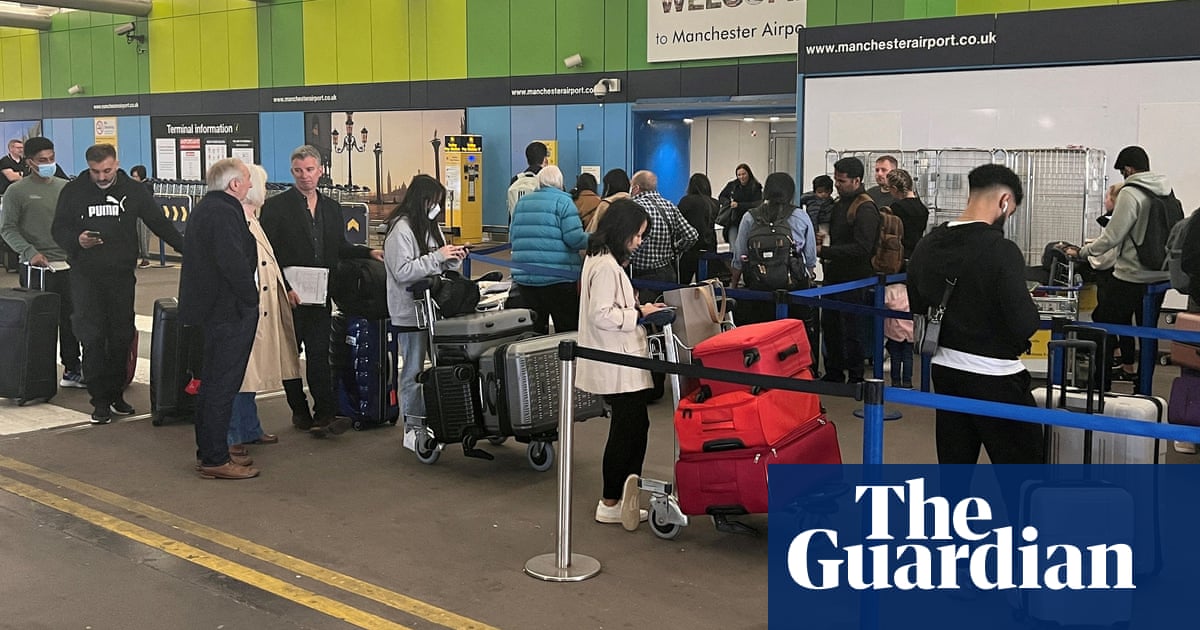
EU citizens living and working in the UK have revealed how they are being met with suspicion and threats that they will be refused entry at the UK border for the first time in their lives, fuelling fresh fears that Border Force officials have not been trained in the new Brexit rules.
Wolfgang, a German national who runs an IT business, was detained at Heathrow airport despite having proof of settled status, indefinite leave to remain and a British passport on the way.
He is furious that his rights were suspended on the whim of a Border Force official.
“I have settled status,” he said. “I have indefinite leave to remain. I am about to become a British citizen. How is it that a border official with one tick can suspend those rights?”
“To be blunt, I am avoiding coming back to the UK now until I get my British passport,” Wolfgang said from Germany. “I pay a large amount of tax there, I have never used the health service, I contribute to the economy, I own property there. London is my favourite city in the world, but I have no documents to show I can stay there,” he said, referring to the fact that the government has voted against giving EU citizens a residency card to show employers, landlords or border officials.
“They need to provide a document that guarantees that this is an irrevocable status unless you have some sort of major criminal offence,” said Wolfgang.
Hilary Benn, a Labour MP and the former chair of the now-disbanded Commons Brexit select committee, said cases such as Wolfgang’s raise concerns about what is in store for the 4.9 million EU citizens who have already been granted settled or pre-settled status, especially as they start to return from visits to their countries of birth when Covid restrictions are lifted.
“It’s worrying to hear of these incidents happening. The Home Office needs to make sure that all Border Force staff are fully trained in applying the new rules.”
Referring to a new Brexit body set up in January to protect EU citizens’ rights, Benn added: “This is something that the Independent Monitoring Authority needs to look at.”
Among the other cases is that of Antonio, a Spanish airline worker who was made to wait for 45 minutes at Gatwick while border officials tried to decide if he was lying when he told them he had pre-settled status.
He said: “My passport was not associated with the settled status. When I told them that is because I applied using my ID card which was perfectly acceptable to the Home Office, they told me that ID cards are no longer acceptable at the border.”
He was only let through after he produced his airline ID and his flight-attendant schedule to prove he was not an illegal migrant.
“Because of my job I have flown to many destinations and I have been through border controls in different countries. I felt I had landed in some random enemy state.
“This is the first time I felt intimidated by a police officer asking me questions just for being a foreigner living in the UK,” he added.
For new arrivals with work visas, it is not plain sailing either.
One Italian man, arriving for a new job at a top British bank, was confronted with officials unsure of the rules when he landed at London City airport.
Marco was detained for hours while border officials, who had refused his request to stamp the arrival date on his passport, pondered over a letter from his lawyer telling him he needed the official marking on his passport in order to take up his new job.
“I was escorted to a waiting room. After almost three hours I was called by an officer who explained to me that it was ‘a bit of a grey area’ as my visa had been issued in electronic form and no guidance had been given by the government on how this would be formally recognised/recorded on one’s passport,” said Marco.
When he arrived at his new job, the first thing the HR department required was the stamp on his passport for their ‘right to work’ check.
Marco’s case is one of half a dozen brought to the attention of the Guardian, which has reported how another cohort of EU citizens – those arriving to visit or to look for work – have been handcuffed, locked up and had personal belongings removed from them before being deported.
Colin Yeo, an immigration barrister and author of the Free Movement blog, said: “This is just how borders work and this has been happening to everyone else from outside the EU and is now just being applied to EU citizens.
“The whole point of free movement was to remove friction at the border. To deliberately reintroduce it was bound to have consequences.
“How Border Force is going to cope with this is hard to see. It is a huge job reimposing full controls between Britain and the EU,” he said.
The Home Office said it was unable to investigate the reports as it had not been “provided details of the alleged persons involved”.
A spokeswoman added: “EU citizens are our friends and neighbours and we want them to stay in the UK, which is why we launched our ground-breaking EU Settlement Scheme.
“Those who do not have status under the EUSS can enter the UK for up to six months as visitors, visa free. However, now freedom of movement has ended, those coming to work or study must prove they meet our entry requirements. We urge people to check the requirements before travelling.
“We expect Border Force to treat all arrivals with respect and consider each passenger’s situation on an individual basis. The British public expect us to check that everyone entering the UK has the right to do so, and passengers may be asked questions to establish the basis on which they are seeking to enter the UK.”












